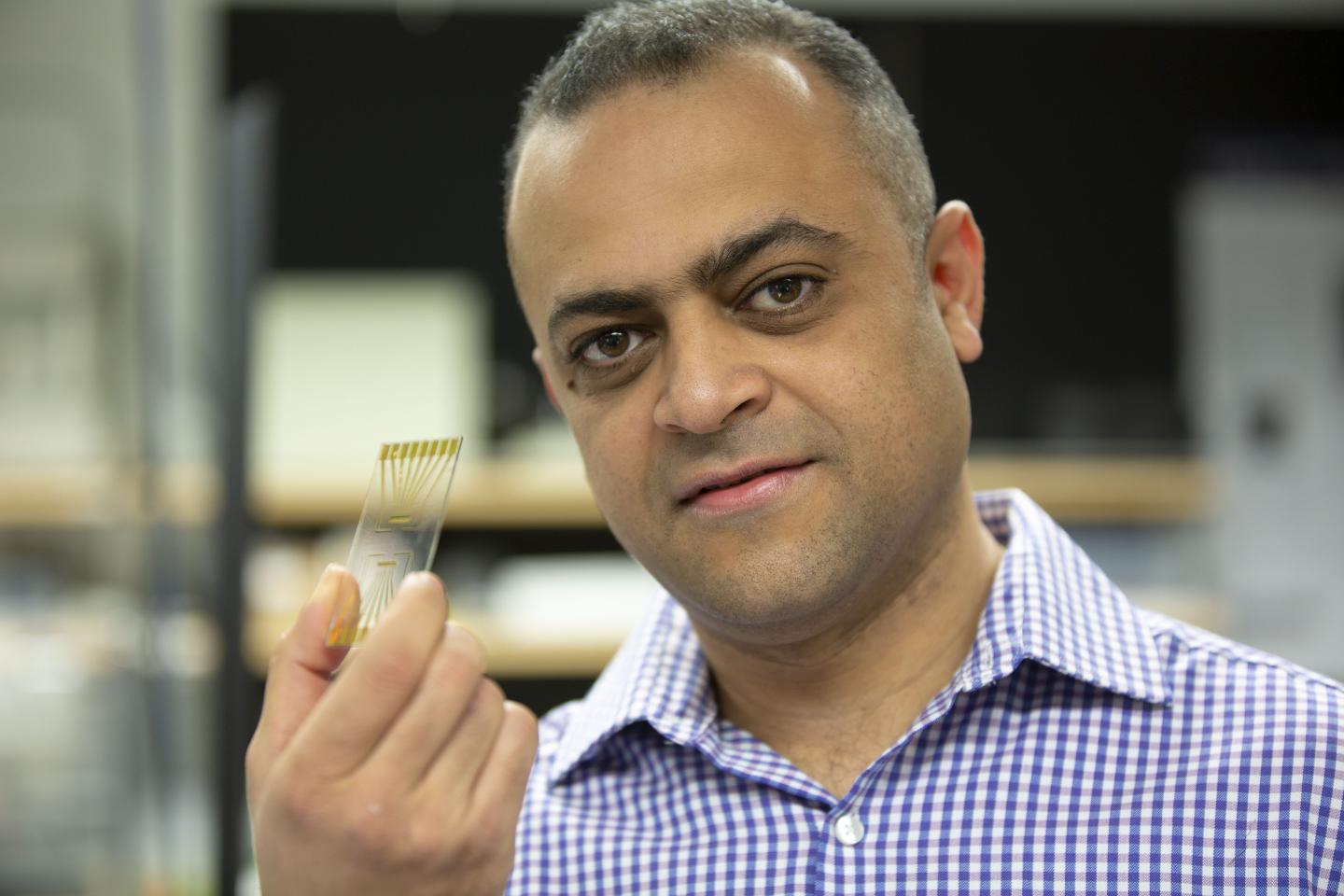Cost-effective biosensor provides immediate and accurate results

Credit: UBC Okanagan
A handheld ‘tricorder’ that can test for biological contamination in real-time has been the dream of science fiction fans for decades. And UBC Okanagan engineers say the technology is closer to science fact than ever before.
Using a small and inexpensive biosensor, researchers in the School of Engineering have developed a novel low-cost technique that quickly and accurately detects cryptosporidium contamination in water samples.
Cryptosporidium is an intestinal pathogen and one of the leading causes of respiratory and gastrointestinal illness in the world. Drinking water contaminated with the parasite can result in diarrhea and, in extreme cases, can even lead to death.
“Current methods for detecting cryptosporidium require filtering large volumes of water, separating out the organisms, staining them with a fluorescence label and trying to identify the pathogen using a microscope,” says George Luka, a doctoral student at UBC Okanagan’s School of Engineering and study lead author. “The process is extremely slow, expensive and doesn’t yield reliable results.”
Luka says there is an urgent need to develop a fast, flexible, accurate and real-time detection tool to meet the challenge of protecting water consumers from this common and potentially dangerous contaminent.
To solve this problem, Luka and his colleagues tested a specially designed and calibrated biosensor. Using varying concentrations of pathogen in water samples, they were able establish its ability to detect cryptosporidium contamination.
“The biosensor performed exactly as we were hoping and was able to measure cryptosporidium contamination rapidly and without the need for complex preparations and highly-trained technicians,” says Luka. “This is an impressive solution that can easily be integrated into inexpensive and portable devices to test drinking water in real-time anywhere in the world.”
Luka also says the biosensor can be expanded to measure other biomarkers and hazards.
“The technology has real potential to be used to test all kinds of biological contamination, both in medical and environmental applications. A handheld sensor that tests the safety of our water and our environment could soon become a reality.”
###
The research was published recently in the journal Sensors and was funded by the India-Canada Centre for Innovative Multidisciplinary Partnerships to Accelerate Community Transformation and Sustainability (IC-IMPACTS).
Media Contact
Nathan Skolski
[email protected]
250-807-9926
Original Source
https:/
Related Journal Article
http://dx.




